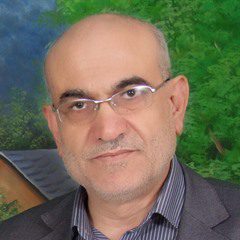When a journalist sets out to defame a political opponent, whoever it may be, finding the reasoning behind it will not be difficult, whatever the motive may be, whatever interests are involved and whichever group foots the bill.
Those prone to jumping from one ideological box to another, or from one political lap to another, will not bat an eyelid when asked to discredit someone. Such things are only difficult on the first occasion; after that it comes almost naturally.
In Egypt we have witnessed political immorality by a large group of media personalities and journalists, not only in recent weeks during the run up to the June 30 demonstration, but also from the first day that President Morsi was elected. In fact, it was obvious even before that, when the Islamists won seats in the Parliament and Shura Council. Examples included people venting their spleen for ideological, sectarian or personal reasons (actually not all that common) and those meeting the demands of internal and external influences, which is actually more common.
When people appoint themselves as judges over the Islamists in articles or reports in which they also demonise them, they often begin by commending themselves and the parties of their choice. In this, they imitate Bashar al-Assad, who considered political Islam (beginning with the Muslim Brotherhood) a danger to the nation, the country and the people of Syria because it utilises religion for political goals. However, he overlooks the same trait in Hezbollah and Iran because they do not deal with people in a sectarian manner, exemplified by the Hezbollah leader’s defence of Iraq’s Prime Minister al-Maliki, even while he cooperated with the occupation. Noble opposition to the occupation was cited as a reason, being based on principle, as is the position of Iran on Syria, Iraq and the Arab Spring.
What is very strange is that some of these writers (as well as Assad) add Turkey’s Justice and Development Party to the list of Muslim Brotherhood branches that are characterised by political opportunism and have no goal other than to gain power and keep it. However, such individuals have ignored the fact that they themselves isolated the Brotherhood and that Turkey is still an important member of NATO.
Fabricated stories abound, such as the nonsense about opposition supporters being thrown from high buildings. We also hear a lot about the Brotherhood’s alleged violence against the opposition, while we hear nothing about the massacre committed by the Republican Guard.
The fact is that the web of lies being spun about Brotherhood violence quotes the few words used in threats by the crowds in Rabaa Al-Adawiya and Nahda Masr Squares, where people of many affiliations speak, but ignores the hundreds of words calling for peaceful protests. At the same time, they use the pro-Mubarak television stations to find a word spoken against the army by a spokesperson, and ignore the dozens of words of praise. Let’s not forget that the army is one thing and its senior officers, corrupted by Hosni Mubarak, are another.
The Muslim Brotherhood in Egypt has no intention to use violence, and it is very clear about this, whether Morsi returns or not; whether they are led to prison or kept free; or whether they are shot, as in the massacre by the Republican Guard, or not.
The peak of all this absurd media activity is the talk of a meeting between the Brotherhood and the Salafi jihadists in the Sinai and others. Such absurdity is compounded by extreme ignorance, as it is enough to look at the jihadist forums to see their position on the Muslim Brotherhood. Moreover, they could follow what is happening in Tunisia and elsewhere, or consider the fact that some of the jihadist leaders in Egypt regard Morsi as a disbeliever. We must also not forget the ridiculous allegations of anti-Egyptian violence made against Hamas, as if the movement is crazy enough to threaten Gaza’s only outlet to the outside world by such activities.
As for the accusations against the Brotherhood of calling on foreign forces, this is based on an open disregard for the fact that Qatar has left its mark on all the national, left-wing and liberal forces. When the people seek help from abroad, it’s difficult for the political forces to stand on the other side, especially if it has experience of being crushed by dictatorship, bloody suppression or occupation. In Iraq, all the forces welcomed the foreign powers, then the Muslim Brotherhood resisted and those involved in the political process were criticised by the other branches of the Muslim Brotherhood, exactly as we criticise them in Egypt. Just as Nasrallah defended his companions (from the Shiite forces) who were standing on the same side, the same experience of calling for help from the international community applies to Libya and Syria now, just as it did in Kuwait following the Iraqi invasion of 1990. This is not a phenomenon limited to the Islamists; it applies to all political groups.
The bottom line is that there is a difference between objective criticism and insult, regardless of the motives. In the former, you can find a reading of the mistakes that no political movement is immune from. However, in the latter, all you find are lies and fabrications, the least of which are fabrications aimed at the defamation of a political or intellectual opponent, no more, no less.
The author is a Jordanian writer. This article is a translation of the Arabic which first appeared in Ad Dustour Newspaper on 15 July, 2013
The views expressed in this article belong to the author and do not necessarily reflect the editorial policy of Middle East Monitor.











